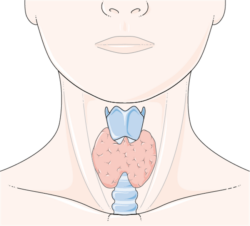In Stephen Fried’s 1998 book, “Bitter Pills: Inside the Hazardous World of Legal Drugs” he describes his wife Diane’s severe adverse reaction to a fluoroquinolone antibiotic, floxin (ofloxacin). Diane became bipolar after taking floxin to treat a urinary tract infection. She also suffered from delirium, visual distortions, insomnia and other central nervous system and psychiatric issues after taking floxin, an antibiotic. This drug is in the same class and has the same mechanism of action as cipro/ciprofloxacin, levaquin/levofloxacin and avelox/moxifloxacin; together they are some of the most popular antibiotics in the United States (26.9 million prescriptions for fluoroquinolones were written in 2011 alone).
Diane was not bipolar before she took floxin. She was bipolar after she took it. Floxin CAUSED Diane to become bipolar.
What??? How does that happen? That’s not possible, is it? It can’t be possible. Antibiotics can’t lead to serious psychiatric illness, can they?
Not all antibiotics can, but fluoroquinolones most definitely can, and do, cause many central nervous system and psychiatric problems, including, but not limited to: seizures, dizziness, confusion, tremors, hallucinations, depression, psychosis, suicidal ideation or thoughts, insomnia, memory loss, loss of reading comprehension, inability to concentrate, bipolar disorder, extreme anxiety, and more. Every one of the neuro-psychiatric symptoms listed has been reported as a long-lasting adverse effect of fluoroquinolones in many of those suffering from fluoroquinolone toxicity. A couple of recent studies reveal how fluoroquinolones can lead to long-lasting psychiatric illnesses.
Mitochondrial Damage, Oxidative Stress and Lipid Peroxidation in Bipolar Disorder
In “Lipid Peroxidation in Psychiatric Illness: Overview of Clinical Evidence” it is noted that, “While its underlying pathophysiology remains multifaceted and elusive, recent data have indicated that mitochondrial dysfunction and aberration in oxidation status are important components of bipolar disorder.” It is noted that indicators of mitochondrial dysfunction and oxidative stress, such as thiobarbituric acid, malondialdehyde, and carbonylation and nitration of cells have been found in the brains of people with bipolar disorder. Additionally, catalase, glutathione peroxidase and lipid peroxidation levels are abnormal in patients with bipolar disorder. The cellular processes that regulate oxidative stress and lipid peroxidation are not working properly in people suffering from bipolar disorder. “The brain is known to be sensitive to oxidative stress and lipid peroxidation” and when oxidative stress and lipid peroxidation are occurring at unhealthy levels in the brain, serious psychiatric diseases can result. (Schizophrenia, major depressive disorder and attention deficit hyperactivity disorder are noted, in addition to bipolar disorder. Each of these psychiatric illnesses are related to oxidative stress and lipid peroxidation.)
Mitochondrial Damage, Oxidative Stress and Lipid Peroxidation caused by Fluoroquinolone Antibiotics
In a 2011 article entitled “Oxidative Stress Induced by Fluoroquinolones on Treatment for Complicated Urinary Tract Infections in Indian Patients” it is noted that, “There is significant and gradual elevation of lipid peroxide levels in patients on ciprofloxacin (3.6 ± 0.34 nmol/ml to 6.2 ± 0.94 nmol/ml) and levofloxacin (3.5 ± 0.84 nmol/ml to 5.1 ± 0.28 nmol/ml).” Additionally, it was found that “There was substantial depletion in both SOD (superoxide dismutase) and glutathione levels particularly with ciprofloxacin.” As lipid peroxide levels increase, and SOD and glutathione levels decrease, reactive oxygen species (ROS) – which cause oxidative stress – build up and cause hugely deleterious effects on all areas of human health – including, but not limited to, mental health.
In “Bactericidal Antibiotics Induce Mitochondrial Dysfunction and Oxidative Damage in Mammalian Cells” it is noted that ciprofloxacin, a fluoroquinolone, as well as a couple other bactericidal antibiotics (but not bacteriostatic antibiotics like tetracyclines), “induced dose and time-dependent increases in intracellular ROS (reactive oxygen species) in various human cell lines.”
The Vicious Cycle of Mitochondrial Damage and Oxidative Stress
When mitochondria are damaged past their tolerance threshold, an over-abundance of ROS/cellular oxidative stress is produced and the “vicious cycle” of mitochondrial damage and oxidative stress is initiated. Mitochondrial damage causes oxidative stress, oxidative stress further damages mitochondria, damaged mitochondria produce more oxidative stress which further damages mitochondria – and so on, and so on. Therefore, diseases that are related to mitochondrial damage and oxidative stress are chronic in nature, and when a pharmaceutical causes mitochondrial damage and oxidative stress, the effects of the pharmaceutical are not transient or stopped when administration of the drug has stopped. They can be long-lasting – sometimes permanent.
Fluoroquinolone antibiotics have been shown to damage mitochondria and lead to both an increase in lipid peroxidation, oxidative stress and a decrease in antioxidants that mitigate oxidative stress. The brain is sensitive to mitochondrial damage, oxidative stress and lipid peroxidation. Bipolar disorders, and other severe psychiatric illnesses, are linked to mitochondrial damage and oxidative stress.
THAT is how Floxin caused Diane to get lost in her closet and receive a diagnosis of bipolar disorder.
She was not bipolar before she took Floxin. She was after she took Floxin. Floxin caused mitochondrial damage and oxidative stress, which led to deleterious effects on her brain and psychiatric illness.
Recognizing the Connection between Fluoroquinolone Antibiotics and Psychiatric Illness
Of course, not everyone who takes a fluoroquinolone antibiotic ends up with a psychiatric illness. But many people do and very few of them have any clue that their mental health problems (including anxiety, depression, insomnia, etc. as well as more severe psychiatric illnesses) are connected with the prescription antibiotic that they took to treat a simple urinary tract or sinus infection. The delayed reactions and tolerance thresholds that come along with pharmaceutical induced mitochondrial damage and oxidative stress make the connection between the cause – cipro, levaquin, avelox and/or floxin, and the effect – mental illness, difficult.
Psychiatric Illness Paradigms Need to be Adjusted
In addition to fluoroquinolones, statins, metformin, acetaminophen and all psychotropic drugs have been shown to cause mitochondrial damage and oxidative stress, which has been linked to many psychiatric illnesses. Rather than looking at how pharmaceuticals affect mitochondria and/or oxidative stress, or how any of those things affect the brain, psychiatrists have been stuck on outdated notions of psychiatric illness. “Although different psychiatric disorders are currently thought to stem from unique abnormalities in neuronal biochemistry, circuitry, and/or brain architecture, emerging data indicates that oxidative stress is present and may play an active role in these psychiatric illnesses.” If it was acknowledged that mitochondrial damage and oxidative stress were causally related to psychiatric disorders, and all chronic diseases (including chronic fatigue syndrome, fibromyalgia, retinitis pigmentosa, diabetes, obesity, etc., along with psychiatric illnesses) perhaps some M.D.s would think twice before prescribing drugs that damage mitochondria and led to oxidative stress.
They should start with thinking twice about prescribing fluoroquinolone antibiotics. Bitter Pills was a bestseller in 1998. Sixteen years has passed, perhaps it’s time to pay attention.
Information about Fluoroquinolone Toxicity
Information about the author, and adverse reactions to fluoroquinolone antibiotics (Cipro/ciprofloxacin, Levaquin/levofloxacin, Avelox/moxifloxacin and Floxin/ofloxacin) can be found on Lisa Bloomquist’s site, www.floxiehope.com.
We Need Your Help
More people than ever are reading Hormones Matter, a testament to the need for independent voices in health and medicine. We are not funded and accept limited advertising. Unlike many health sites, we don’t force you to purchase a subscription. We believe health information should be open to all. If you read Hormones Matter, like it, please help support it. Contribute now.
Yes, I would like to support Hormones Matter.
This article was published originally on June 4, 2014.

















